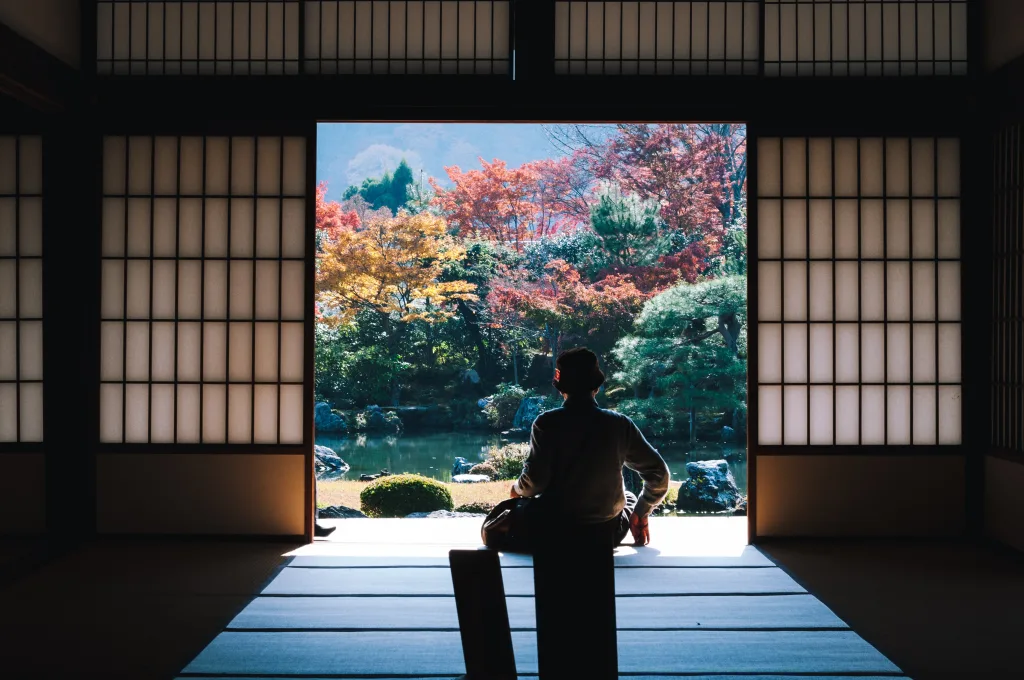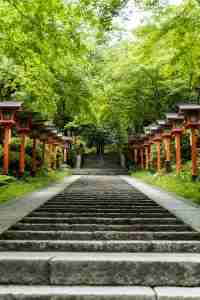Intrigued by the tranquility and beauty of Zen gardens, you may find yourself wondering if these serene spaces exist beyond the borders of Japan. The answer, my friend, lies in exploring the fascinating world of Zen gardens across nations. While Japan may be renowned for its iconic Zen gardens, it may surprise you to discover the presence of these captivating havens in unexpected corners of the globe. From the rugged landscapes of the United States to the vibrant traditions of China and the peaceful retreats of Italy, Zen gardens have found their way into the hearts and landscapes of many countries, embodying the essence of peace, harmony, and mindfulness. Join me on this journey as we unravel the global oasis of Zen gardens and soak in the serenity they offer. Yes, indeed! Zen gardens, also known as Japanese rock gardens or dry landscape gardens, have made their way beyond the borders of Japan and have spread their serene beauty and calming influence to various corners of the world. From the United States to Europe, Australia to South America, Africa to Canada, and even other countries in Asia, Zen gardens have found a place in the hearts of many landscape enthusiasts and garden admirers worldwide. Let’s take a journey and explore the origins and proliferation of Zen gardens in different parts of the globe.

Origins of Zen Gardens
Historical background of Zen gardens in Japan
The roots of Zen gardens can be traced back to the 14th century in Japan, during the Muromachi period. These gardens were created by Zen Buddhist monks as spaces for meditation and contemplation. Influenced by Chinese landscape painting and the concepts of Taoism and Zen Buddhism, Zen gardens were designed to serve as a physical representation of the harmonious relationship between humans and nature.
Philosophy and symbolism in Zen gardening
Zen gardens are known for their minimalist and symbolic design. They often consist of carefully raked gravel or sand, strategically placed rocks, and sometimes a few carefully selected living plants. Every element in a Zen garden has its own significance, representing natural elements, such as mountains, water, or islands, and encouraging a sense of tranquility and harmony. The act of raking the gravel or sand is viewed as a form of meditation, helping to calm the mind and cultivate mindfulness.
Zen Gardens in the United States
Overview of Zen gardens in the U.S.
In the United States, Zen gardens have gained popularity for their aesthetic appeal and their ability to provide a peaceful retreat from the busy urban life. They can be found in various settings, including public parks, private residences, and even corporate environments. Zen gardens offer Americans a way to connect with nature and find a moment of respite in their everyday lives.
Famous Zen gardens in the U.S.
One of the most famous Zen gardens in the United States is the Portland Japanese Garden in Oregon. Known for its authentic Japanese design and meticulous attention to detail, this garden incorporates traditional elements such as carefully pruned Japanese maples, stone lanterns, and a contemplative strolling path. Another notable Zen garden is the Japanese Tea Garden in San Francisco, which features a stunning stone bridge, serene koi ponds, and lush greenery that transports visitors to a peaceful sanctuary.
Popularity and adaptation of Zen gardens in American culture
Zen gardens have not only found a place in American landscapes but have also influenced American culture. The principles of simplicity, balance, and harmony found in Zen gardens have inspired interior design trends, such as minimalist and Zen-inspired home decor. These gardens have become a source of inspiration for architects, designers, and artists, who strive to create spaces that evoke a similar sense of serenity and mindfulness.
Zen Gardens in Europe
Presence of Zen gardens in Europe
Europe has embraced the beauty and tranquility of Zen gardens, incorporating them into public parks, private residences, and even cultural institutions. Zen gardens can be found in countries like the United Kingdom, France, Germany, and the Netherlands, to name a few. As Europeans have become more conscious of the benefits of nature and mindfulness, Zen gardens have become a popular choice for creating outdoor spaces that promote relaxation and reflection.
Noteworthy Zen gardens in various European countries
One of the most renowned Zen gardens in Europe is the Ryoan-ji inspired garden at the Maison de la Culture du Japon à Paris in France. Designed by architect Kengo Kuma, this garden captures the essence of traditional Japanese Zen gardens while integrating elements of French landscaping. In the Netherlands, the Japanese Garden in The Hague showcases a beautiful Zen garden with serene ponds, gracefully pruned trees, and stone arrangements that exemplify the Zen aesthetic.
Influence of Zen gardens on European landscaping
Zen gardens have had a significant impact on European landscaping practices, influencing the design principles of symmetry, simplicity, and harmony. European garden designers have taken inspiration from Zen gardens to create spaces that evoke a sense of calm and tranquility. The use of natural materials, such as stone and gravel, and the incorporation of carefully chosen plantings, help to create a Zen-like atmosphere within the gardens.
Zen Gardens in Australia
Introduction to Zen gardens in Australia
Zen gardens have gained popularity in Australia as well, with many Australians embracing the principles of mindfulness and seeking a connection with nature. Australian Zen gardens often feature native plants and incorporate elements that reflect the local environment. These gardens provide a serene oasis amidst the vastness of the Australian landscape.
Prominent Australian Zen gardens
One notable Zen garden in Australia is the Japanese Garden at Cowra, New South Wales. Created as a symbol of peace and reconciliation, this garden showcases the tranquility and beauty of Japanese Zen gardens. It features carefully manicured bonsai trees, stone lanterns, and meandering pathways that invite visitors to escape the hustle and bustle of daily life.
Impact of Zen gardens on Australian horticultural practices
The influence of Zen gardens on Australian horticultural practices is evident in the incorporation of Zen-inspired design elements in residential gardens and public spaces. The focus on simplicity, clean lines, and the use of natural materials has become a hallmark of Australian garden design. Zen gardens have also encouraged Australians to explore the concept of mindfulness and incorporate elements of meditation and reflection into their gardening routines.

Zen Gardens in South America
Overview of Zen gardens in South America
South Americans have also embraced the allure of Zen gardens, recognizing their ability to create a sense of tranquility and harmony in garden spaces. Zen gardens can be found in countries such as Brazil, Argentina, Chile, and Peru, offering a peaceful escape from bustling cities and hectic lifestyles.
Significant Zen gardens in South American countries
One notable Zen garden in South America is the Imperial Garden of the Brazilian Landscaping School in Petrópolis, Brazil. This garden showcases the principles of Zen gardening with its minimalist design and carefully arranged rocks and gravel. In Argentina, the Zen Garden at the Japanese Gardens in Buenos Aires captivates visitors with its serene atmosphere and exquisite arrangements of stones and plants.
Integration of Zen gardens into South American cultures
Zen gardens have found a place within South American cultures, not only as beautiful spaces but also as places of meditation and reflection. South Americans have embraced the idea of connecting with nature and finding balance in their lives, making Zen gardens an integral part of their cultural landscape.
Zen Gardens in Africa
Presence of Zen gardens in Africa
While Zen gardens may not be as prevalent in Africa as in other regions, there is a growing interest in incorporating Zen-inspired design elements into African gardens. African gardeners are drawn to the simplicity and tranquility of Zen gardens and are exploring ways to adapt these principles to suit the local environment.
Famous Zen gardens in African countries
One noteworthy Zen garden in Africa is the Japanese Gardens in Durban, South Africa. This garden showcases a beautiful blend of Japanese and African design elements, featuring a traditional Zen garden with carefully raked gravel, sculptural rocks, and indigenous plantings. The garden serves as a testament to the cross-cultural exchange between African and Japanese aesthetics.
Influence of Zen gardens on African gardening
The influence of Zen gardens on African gardening can be seen in the incorporation of minimalist design principles and the use of natural materials. African gardeners have begun to embrace the concept of creating peaceful and harmonious spaces that encourage mindfulness and reflection, taking inspiration from the Zen garden tradition.

Zen Gardens in Canada
Insight into Zen gardens in Canada
Canada has also embraced the beauty of Zen gardens, with many Canadians recognizing their ability to provide a sanctuary for contemplation and peacefulness. Zen gardens can be found in various Canadian cities, offering residents and visitors an opportunity to connect with nature and find inner peace.
Well-known Canadian Zen gardens
One of the most notable Zen gardens in Canada is the Nitobe Memorial Garden in Vancouver, British Columbia. This garden is considered one of the most authentic Japanese gardens outside of Japan and showcases the principles of Zen gardening with its tranquil pond, carefully placed stones, and perfectly manicured trees. Another noteworthy Zen garden is the Buddhist Zen Garden in Montreal, Quebec, which provides a serene space for meditation and reflection.
Acceptance of Zen gardens in Canada
Zen gardens have been warmly embraced by Canadians, who appreciate their ability to create a harmonious environment and promote a sense of well-being. Canadian gardeners have incorporated Zen-inspired design elements into their landscapes, and the principles of mindfulness and tranquility often associated with Zen gardens have become an integral part of Canadian gardening practices.
Zen Gardens in Asia, excluding Japan
Scope of Zen gardens in Asia, outside of Japan
Zen gardens have found their way to numerous Asian countries, extending beyond their birthplace in Japan. Countries such as China, South Korea, Vietnam, and Thailand have adopted and adapted the principles of Zen gardening, creating their own interpretations of these serene landscapes.
Prominent Zen gardens in various Asian countries
In China, the Garden of the Humble Administrator in Suzhou is a prominent example of a Zen-inspired garden. This UNESCO World Heritage Site features exquisite rock formations, tranquil ponds, and meticulously arranged plantings. In South Korea, the Bulguksa Temple in Gyeongju boasts a stunning Zen garden surrounded by historical buildings, providing a serene backdrop for spiritual contemplation.
Impact of Zen gardens on Asian landscaping trends
Zen gardens have had a profound effect on landscaping trends throughout Asia. The emphasis on simplicity, balance, and tranquility has influenced the design of both public and private gardens. Asian gardeners have embraced the calming influence of Zen gardens and have incorporated their principles into their own cultural landscape, creating a fusion of traditional and Zen-inspired design elements.
Global Zen Garden Designers and Architects
Famous Zen garden designers
Numerous designers and architects have contributed to the global spread of Zen gardens, adapting and interpreting the principles of Zen gardening in unique and innovative ways. Some notable names in the field include Shunmyo Masuno, Hoichi Kurisu, and Isamu Noguchi. These designers have reimagined and revitalized the concept of Zen gardens, shaping the way these landscapes are understood and created worldwide.
International influence of Japanese Zen garden architects
Japanese Zen garden architects have had a profound influence on the international landscape design community. Their expertise and vision have transcended borders, inspiring designers around the globe to incorporate elements of Zen gardens into their own works. The meticulous craftsmanship and attention to detail displayed by Japanese architects have become hallmarks of Zen garden design across different cultures.
Role of designers in spreading Zen gardens globally
Designers play a crucial role in spreading the beauty and philosophy of Zen gardens globally. Their ability to adapt and integrate Zen-inspired design elements into diverse cultural contexts has led to the widespread popularity and acceptance of these gardens. Designers often collaborate with local craftsmen and landscape professionals to ensure the authenticity and cultural relevance of Zen gardens in different parts of the world.
Conclusion: The Global Spread of Zen Gardens
Assessment of the international popularity of Zen gardens
Zen gardens have undoubtedly captured the hearts and minds of people around the world, transcending cultural boundaries in their quest for tranquility and harmony. Their universal appeal lies in their ability to provide sanctuary and encourage mindfulness in an increasingly fast-paced and chaotic world.
Cultural adaptations of Zen gardens worldwide
As Zen gardens have spread globally, they have undergone cultural adaptations to suit various climates, vegetation, and cultural sensibilities. Local materials and design elements have been incorporated, resulting in a rich tapestry of Zen garden styles that reflect the unique beauty of each region.
Future trends in global Zen garden design
While the essence of Zen gardens remains timeless, future trends in global Zen garden design are likely to be influenced by advancements in technology and sustainable practices. The integration of smart landscaping techniques, eco-friendly materials, and innovative design concepts will shape the future of Zen gardens, ensuring their continued relevance and appeal for generations to come.
In conclusion, the global spread of Zen gardens highlights their inherent beauty and the universal longing for peace and tranquility. From their origins in Japan, Zen gardens have found a place in the hearts and gardens of people worldwide. Whether in the United States, Europe, Australia, South America, Africa, Canada, or Asia, Zen gardens continue to captivate and inspire, inviting us to slow down, reflect, and find solace amidst the chaos of modern life.



